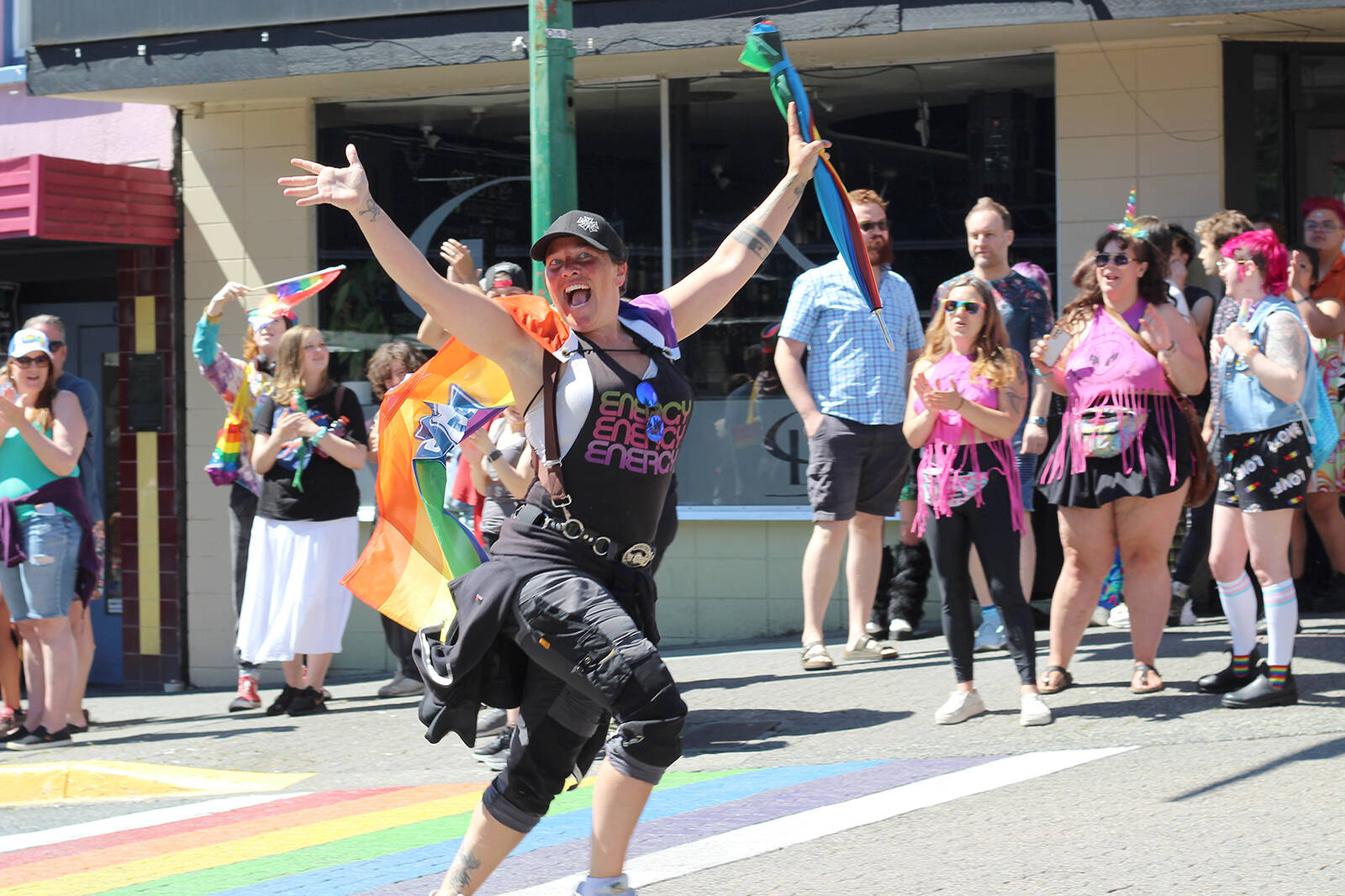For the first time in its decade-long history, the Pride festival in Timmins, Ont., had to budget for security this year.
Previously, there had been no online threats, no reason to believe safety was any issue. But hateful anti-LGBTQ rhetoric has ramped up across the internet, and the northern Ontario city of 40,000 was not spared.
“Typically it’s $17,000 for our entire Pride Week, because we’re small; we’re little,” said Julie Nobert-DeMarchi, who serves as treasurer for Fierté Timmins Pride. “But our security bill was $3,000. That’s far different from what we’re accustomed to.”
Pride organizations across the country have been grappling with more threats, while anti-LGBTQ protesters have come out in force to oppose events held by the community year-round, such as child-friendly drag performances. It’s put security top of mind for Pride organizers — in some cases, for the very first time.
In Timmins, police were on hand for the parade, Nobert-DeMarchi said, but it was too pricey to also have officers at an inclusive drag brunch earlier in the day. Instead, the organization contracted private security.
One protester showed up to the kid-friendly event with a loudspeaker, she said, and volunteers formed what she described as a “wall of love” to separate that person from the attendees who were inside the Timmins Museum. They also blasted music to drown out what the protester was saying.
“We had a security plan,” she said. “We didn’t know how many people were going to show up to protest or what might happen, so we had to prepare for the worst. That makes it really difficult, because you’re thinking worst case scenario.”
Nobert-DeMarchi, who is also board president for Fierté Canada Pride, the national association of Pride organizations, said that group did a survey of its members ahead of this year’s Pride season.
“All communities have identified an increase in online hate, an increase in experiencing hateful messaging, and additional concerns around planning their events. What was very different was how everyone would be approaching it,” she said.
In some cases, outdoor events were moved indoors to keep them contained. In others, like Timmins,organizers paid forprivate security in addition to police.
Farther west, in Steinbach, Man., RCMP and local police will both be on hand for the parade.
“With the way that everything is going these days, you hear so much negativity, and you hear so many cities and communities that are having these big security problems,” said Chris Plett, president of Steinbach Pride. “We were very nervous as to how that would play out for us this year.”
Pride in Steinbach has always been something of a contentious issue. The city of 17,000 in an area often described as Manitoba’s Bible Belt held its first march in 2016, after much opposition. Elected officials — the mayor, the MLA, the MP — have yet to attend, Plett said.
While Steinbach hasn’t received the same influx of threats as other communities, Plett said there’s always negative talk about Pride online, and he’s been on the receiving end of some hateful messages. To prepare for all possibilities, Plett said organizers were also implementing a “cadet” system to help police.
“Our biggest goal is to make sure that the people that attend don’t realize how much work was into the safety and security. And they can just enjoy themselves and enjoy the day,” Plett said.
It is a lot of work.
Pride Toronto, for example, said its security team was authorized to check everyone for weapons using a security wand as they entered designated festival areas.
The organization’s cost of policing more than doubled, and the price ofprivate security rose by 25 per cent. Insurance this year cost more than $300,000, up from $67,000 in 2022.
That’s part of what prompted the federal government to issue emergency funding to Pride groups across the country to help with security.
Fierté Canada Pride said $750,000 would be split between Montreal, Toronto and Vancouver, while $600,000 would go to smaller cities and communities.
But asking police officers to protect members of the LGBTQ community doesn’t sit well with everyone.
Gary Kinsman, a member of No Pride in Policing, argued that for most of history, police have not been on the side of the LGBTQ community.
“Over and over again, in terms of the right wing…the police end up defending them,” he said.
Sometimes, he said, the police have even been the aggressors, such as during the bathhouse raids in Toronto in 1981, for which Kinsman was present.
In those cases, LGBTQ people were responsible for defending themselves.
“Clearly people understood the police were not on our side,” he said of the events 40 years ago. “People organized the Gay Street Patrol, which actually was a regular patrol that went on the streets that dealt with any sort of queer bashing, or violence against queer people that was taking place.”
These days, the executive director of LGBTQ group Egale Canada said different communities have to take different approaches to security.
Helen Kennedy said in some areas, particularly those that include people on the intersection of multiple marginalized groups, it’s not appropriate to involve police.
“We’ve been victimized at the hands of police throughout history, and in some jurisdictions that’s still pervasive and still continues,” she said. “There’s a lot of work to be done.”
READ ALSO: David Eby calls banners over B.C. highway ‘hateful’ and ‘reprehensible’
READ ALSO: Fears for LGBTQ mental health, as flood of online hate spills into real world

